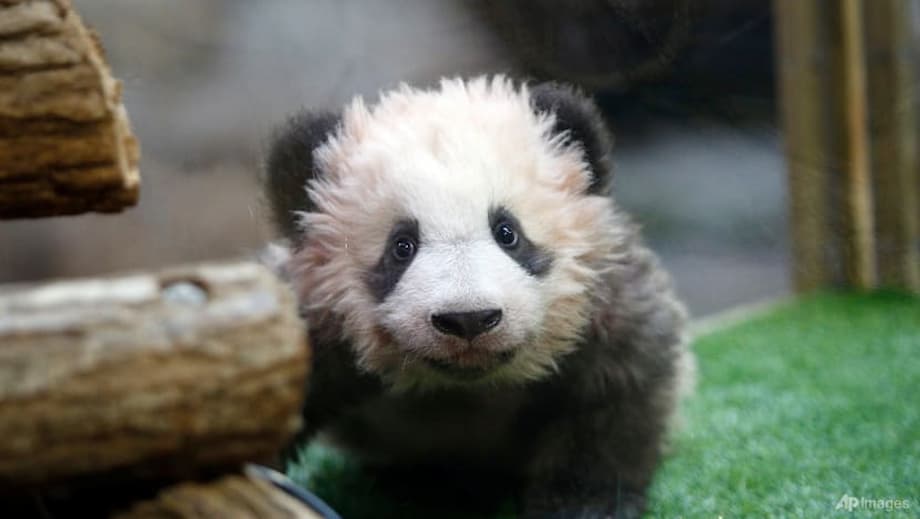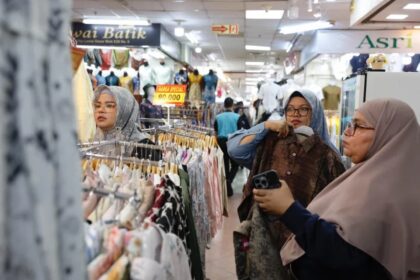A difficult decision for Beauval and Beijing
ZooParc de Beauval, one of France’s most visited wildlife parks, will send its two giant pandas back to China in November 2025 after veterinarians confirmed that the female, Huan Huan, has kidney failure. Both Huan Huan and her mate, Yuan Zi, are 17 years old. They arrived from China in 2012 as part of a conservation and research loan, a hallmark of panda diplomacy that places the species as symbols of goodwill. The pair had been expected to remain in central France until January 2027. After consultations with Chinese wildlife authorities and medical teams, Beauval chose to advance the return so Huan Huan can receive specialized care at a sanctuary in the Chengdu area while she is still stable. The park says she is eating well and shows normal behavior, and it wants to keep it that way during a carefully planned transition.
- A difficult decision for Beauval and Beijing
- Who are Huan Huan and Yuan Zi
- What kidney failure means for a giant panda
- Why return to China now
- Panda diplomacy and the loan agreement
- What happens to the twins at Beauval
- Conservation status and what it means
- How the journey will work
- Tourism and community impact
- The Bottom Line
During their stay the bears became celebrities. They produced three cubs, the first pandas ever born in France, and drew visitors from across the country. The eldest cub, a male named Yuan Meng, returned to China in 2024 to join breeding and conservation work. Twin cubs born in 2021, Huanlili and Yuandudu, will remain at Beauval for now to support education and outreach on panda conservation. The zoo says the twins are thriving and will continue to be part of daily programs that explain the species and its habitat.
The decision blends animal welfare, veterinary science and diplomacy. Panda loans are built on long partnerships between institutions and governments, and they involve careful planning for every stage of the animals lives. An early repatriation, set for late 2025, gives Beauval and Chinese experts time to prepare medical protocols, transport logistics and quarantine arrangements with the least possible stress for an aging bear.
Who are Huan Huan and Yuan Zi
Huan Huan, the female, and Yuan Zi, the male, are among the best known pandas in Europe. They arrived at Beauval in 2012 after years of talks between the French zoo and Chinese authorities. The pair quickly became the parks signature residents. Crowds lined up to see feeding times and keepers training sessions, and the pandas presence helped make a relatively small town, Saint Aignan sur Cher, a destination for family trips and school visits.
Births that made French history
In 2017 France celebrated the birth of Yuan Meng, the first panda born in the country. The event sparked a wave of public interest and fundraising for conservation. In 2021 Huan Huan delivered twins, Huanlili and Yuandudu, a rare success in captivity that required round the clock care by keepers. The twins have grown into curious, active juveniles. Their stay in France, which had been expected to end around 2025, is now likely to continue a bit longer while plans are updated with Chinese partners to prioritize the animals needs and ongoing education work.
How the pair transformed Beauval
Beauval reports about two million visitors in 2023 and revenue of roughly 113 million euros. The pandas are not the sole reason for those figures, yet they have served as headline ambassadors who raised the profile of the park across Europe. Shops, hotels and restaurants in the surrounding Loir et Cher department benefited from the steady stream of visitors. The zoo plans farewell activities that celebrate the pandas contribution without causing undue stress for the animals.
What kidney failure means for a giant panda
Kidney failure, often called chronic kidney disease, is common in older carnivores, including bears and big cats. The kidneys filter waste from the blood and regulate hydration and minerals. As the organs age they lose function. Animals may drink more water, urinate more frequently, lose weight or show lethargy. Veterinarians can manage the condition with diet adjustments, careful hydration, medications to control blood pressure and phosphorus, and close monitoring. The aim is to maintain a good quality of life and prevent sudden complications.
Rodolphe Delord, director of ZooParc de Beauval, said the team chose an early return while Huan Huan is still stable so that long term care can continue in China with the full support of national specialists.
“We prefer to return her to China before her health deteriorates further, though she still shows a good appetite and normal behavior.”
Long flights are planned with the animals comfort in mind. Pandas usually travel in custom crates under keeper supervision. Sedation is avoided when possible, especially for an animal with a kidney condition, because some sedatives can affect blood pressure or hydration. Travel in November 2025 gives teams time to fine tune diet, hydration and routine so the trip causes minimal disruption.
Why return to China now
The pair were officially due to stay in France until January 2027, an extension agreed as the pandas aged and the zoo invested in their habitat. After the diagnosis, Beauval consulted Chinese partners and decided on a November 2025 repatriation to a panda sanctuary in the Chengdu area. China operates several facilities with extensive experience in geriatric care, including advanced imaging and teams that treat many pandas each year.
Returning sooner also aligns with ownership rules. Pandas on loan remain Chinese property, and medical decisions are coordinated with Chinese authorities. The sanctuary network in Sichuan province is set up to handle complex medical needs and retirement care for aging animals. Keeping the timeline clear a year in advance allows for staff exchanges, paperwork, transport permits and training sessions that prepare the bears for travel.
Panda diplomacy and the loan agreement
Panda diplomacy dates back decades. China lends pandas to accredited zoos around the world through multi year agreements that support scientific research and conservation. Host zoos pay significant fees that help fund habitat protection in China and share data on breeding, veterinary care and behavior. All cubs born abroad are Chinese property and typically return to China several years after weaning.
Beyond research, pandas serve as soft power ambassadors who draw attention and visitors. Beauval says it hopes to extend its partnership with China beyond 2027 and, if conditions allow, welcome pandas again in the future. The reputation the park built by caring for Huan Huan and Yuan Zi for more than a decade strengthens that case.
What happens to the twins at Beauval
Huanlili and Yuandudu have reached an age where they live independently from their mother. In the wild, panda mothers separate from cubs well before they reach three years. The twins are now accustomed to their own routine with keepers and do not rely on Huan Huan for food or care. They will remain on view in central France, and the zoo plans to use their presence to deepen public programs about bamboo forests, wildlife corridors and field research.
Any future transfer of the twins will be planned with the same protocols used for adult pandas, coordinated by Chinese authorities and international teams. For now, their continued stay helps the zoo maintain a panda presence while visitors prepare to say goodbye to Huan Huan and Yuan Zi.
Conservation status and what it means
Giant pandas are listed as vulnerable on the IUCN Red List after steady gains in the wild population over recent decades. The shift from endangered status reflects expanded nature reserves, reforestation and a clearer understanding of panda habitat needs. Conservation leaders caution that progress can reverse if habitat fragments or if bamboo forests decline.
The species remains sensitive to changes in mountain ecosystems. Roads and development can split habitat into small islands, and climate change can alter bamboo growth. China has worked to connect reserves with wildlife corridors, and overseas zoos contribute by funding field work, training keepers, and engaging millions of visitors with science education. The births at Beauval helped raise awareness and money for those projects.
How the journey will work
In the months ahead, keepers will condition both pandas to enter and rest inside travel crates so the boxes feel familiar. Training relies on food rewards and calm routines. The crates are designed to keep the animals cool, secure and able to sit, stand and lie down. On travel day, veterinarians will check hydration, blood pressure and stool quality, and will pack a supply of fresh bamboo and biscuits to cover the itinerary.
Flights for pandas are typically scheduled to avoid heat and to minimize layovers. A veterinarian and experienced keepers travel with the animals to monitor breathing, appetite and behavior. Upon arrival in China, the pandas will enter quarantine and then move to a quiet enclosure in a sanctuary near Chengdu. The first weeks focus on rest, familiar food and stable routines. Family contact will be limited to prevent stress, and medical teams will run follow up tests to adjust treatment.
Tourism and community impact
Pandas helped build Beauval into a must see destination. The zoo recorded about two million visitors in 2023 and revenue around 113 million euros. Local hotels, guesthouses and cafes in the Cher valley benefited from the traffic. Attendance may shift as the adult pandas depart, yet the twins, extensive primate and bird collections, and major African and Asian habitats give the park a broad draw that extends beyond a single species.
The zoo says it will organize respectful farewell events for Huan Huan and Yuan Zi before the November 2025 transfer. Staff will use those dates to highlight what the pandas taught French keepers and the public about bamboo ecology, veterinary care and international cooperation. Discussions with Chinese partners about future collaboration continue, reflecting the long relationship that began with the pairs arrival in 2012.
The Bottom Line
- Beauval will repatriate Huan Huan and Yuan Zi to China in November 2025 after a kidney failure diagnosis for the female.
- The pandas arrived in France in 2012 and were due to stay until January 2027.
- Huan Huan remains stable, with good appetite and normal behavior, and the zoo wants to keep conditions steady during a planned transition.
- During their stay, the pair produced three cubs, including twins in 2021. Yuan Meng left for China in 2024, while Huanlili and Yuandudu remain at Beauval for now.
- The repatriation will take the bears to a sanctuary in the Chengdu area with extensive geriatric care experience.
- Pandas are listed as vulnerable, and international loans support research, habitat protection and public education.
- Beauval recorded about two million visitors in 2023 with revenue around 113 million euros, underscoring the pandas role in raising the parks profile.
- The zoo hopes to continue its partnership with China beyond 2027 and may host pandas again in the future.












